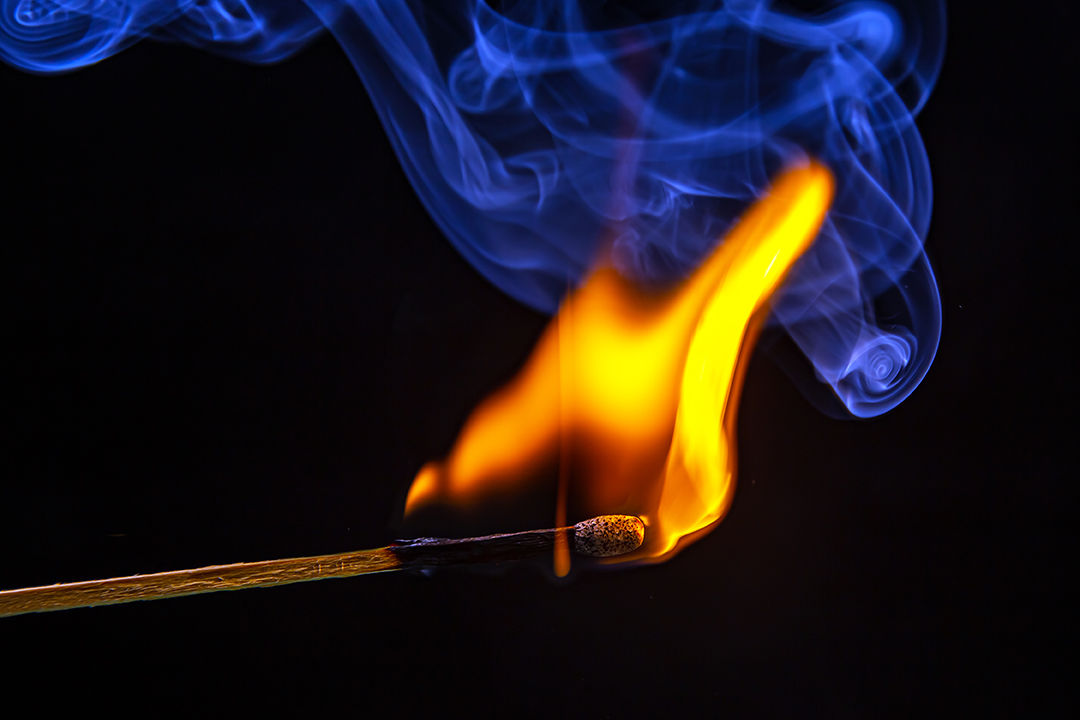Arson is the act of causing property damage through intentionally or recklessly causing a fire or explosion, making it a serious property crime. Fires or explosions can cause danger to property and human life and this makes arson a serious criminal offence under the Criminal Code of Canada.
Arson is covered under s.433 to s.436 of the Criminal Code under Part XI, with five types of arson. The most serious type of arson is when someone sets a fire that could hurt or kill people, which carries a maximum life sentence.
Strategic Criminal Defence is a top Google-rated criminal defence firm in Toronto, with over 100 5-star reviews. Our national firm, and our experienced legal team, have defended clients in over 10,000 criminal cases. Leveraging our extensive network of lawyers and decades of experience, we craft defence strategies to help those accused of criminal offences beat the charges.
The lawyers at Strategic Criminal Defence are both highly experienced and dedicated to defending your rights and future in the face of these charges. Contact us today by calling (647) 986-8077.
Key Takeaways
- Arson is a very serious crime that involves deliberately setting fires or causing fire damage
- Depending on which type of arson you have been charged with, the severity of the offence will vary based on whether it is viewed as an indictable or summary offence
- The most serious type of arson charge (endangering human life) can result in life in prison
- The specific circumstances surrounding the charge will lead to potential bail conditions. For example:
- A curfew or house arrest may be placed as a condition if it is believed that the fire/explosion was caused at night or while you were intoxicated
- You may also be prohibited from having any items that can be used to start fires (matches, lighters, gas, propane, etc.)
- A prohibition on the use of drugs, alcohol and weapons may also be included
- You may also be prohibited from travelling
- With a diligent defence lawyer, arson charges can be beaten. Contact a Strategic Criminal Defence lawyer for assistance in determining the best strategy for you today.
How can an arson lawyer in Toronto help?
If you are accused of arson, a Strategic Criminal Defence lawyer can help you understand the law and offer solid legal advice. Before any charges are even filed, we can begin to advise you of your best course of action moving forward.
Our lawyers can assist in protecting your rights and innocence by gathering evidence, examining witnesses, and, if necessary, hiring expert witnesses.
Our lawyers know exactly what evidence is needed in cases of arson, including when allegations overlap with insurance fraud. We can also hire fire experts to look over the evidence and question the prosecution’s conclusions, get security footage and witness statements that could help your case, look for problems with how evidence was gathered, and help you navigate the complicated court system.
Arson Charges in the Criminal Code of Canada
According to section 433 of the Criminal Code:
Arson — disregard for human life
Every person who intentionally or recklessly causes damage by fire or explosion to property, whether or not that person owns the property, is guilty of an indictable offence and liable to imprisonment for life where the fire or explosion causes bodily harm to another person.
According to section 434 of the Criminal Code:
Arson — damage to property
Every person who intentionally or recklessly causes damage by fire or explosion to property that is not wholly owned by that person is guilty of an indictable offence and liable to imprisonment for a term not exceeding fourteen years.
According to section 435 of the Criminal Code:
Arson for fraudulent purpose
Every person who, with intent to defraud any other person, causes damage by fire or explosion to property, whether or not that person owns the property, is guilty of an indictable offence and liable to imprisonment for a term not exceeding fourteen years.
According to section 436 of the Criminal Code:
Arson by negligence
Every person who owns, in whole or in part, or controls property and who, as a result of a marked departure from the standard of care that a reasonably prudent person would use to prevent or control the spread of fires or to prevent explosion, is a cause of a fire or explosion in that property that causes bodily harm to another person or damage to property is guilty of an indictable offence and liable to imprisonment for a term not exceeding five years or is guilty of an offence punishable on summary conviction.
Examples of Arson Charges
Some examples of what could lead to arson charges in Toronto may include the following:
- Setting fire to your car;
- Not properly extinguishing a fire that ensues;
- Starting a fire in your own home, with the intention of committing suicide; and
- The destruction of property that is caused by intentionally placing matches to paper.
Consequences of an Arson Charger
Whether you are a first-time or repeat offender, the Courts recognize the potential for life-threatening situations to arise from arson and consider it to be a very serious offence. This is mainly due to the destructive and unpredictable nature of fire itself.
Most types of arson charges are indictable offences, however, two of them are considered to be hybrid offences. This means that the two types of arson, for fraudulent purposes and by negligence, are hybrid offences and can be pursued as either a summary offence or an indictable offence depending on the circumstances of the case.
The maximum sentences vary from 5 years, 10 years, 14 years or life imprisonment depending on which type of arson the accused is convicted of. The Courts may also order the accused to compensate the victims for the full amount of damage caused.
Arson Charge Defences
The available defences will depend on the specific facts of the case. Many different defences exist but the strength in applying them relies on the details of the allegations.
Some of more common defences to arson charges may include:
- Breach of Charter Rights: Before someone is convicted they are entitled to their Charter rights. Therefore, if your Charter rights are breached by, for example, you not being provided with complete disclosure or being forced into making a statement, it is possible that the charges you are accused of will be withdrawn or reduced
- Identity: For this defence to successfully be applied, you must prove a case of mistaken identity to raise reasonable doubt as to whether you were the one who caused the fire or explosion. Having a strong alibi for when a fire or explosion occurs can help in having a strong defence.
- Defence of Mental Disorder: This is often a tricky defence to meet, as most mental disorders do not have visible symptoms. It must be established that the accused was not aware of the extent of their actions due to a “disease of the mind”. It is noteworthy that if acquitted on this defence, then you will be held as “not criminally responsible on account of a mental disorder” which differs from “not guilty”.
- Lack of Mens Rea/ Actus Reus: A key component of arson convictions is the intent or recklessness in causing the fire or explosion. If the defence is able to prove that these components are missing, by for example demonstrating that the fire’s occurrence was an accident, then the accused may be acquitted due to a lack of mens rea.
- Lawful Excuse/ Colour of Right: This defence is applicable in cases where the individual honestly believed that they acted within their Charter rights when causing the fire or explosion, thereby providing a legal justification for the act.
Arson Charge Investigation
When there is a serious arson case, the police will usually send a large team of specialists to gather evidence from the scene. Meanwhile, the police will work to determine a motive by speaking with the victims and gathering witness statements.
The police and the specialist team will then work together to determine the cause and reason for the fire or explosion. This work will point to the current list of suspects. Once all the evidence is collected and suspects narrowed down, the police will either arrest the suspected perpetrator or issue a warrant for their arrest.
Bail Conditions for Arson Charges
After you are charged with arson and released on bail, there will be certain bail conditions that you must follow. Breaking these conditions can result in you being charged, your bail being dismissed, or a penalty requiring you to pay a fine being applied.
These conditions can often include a prohibition of having any materials that can start a fire, such as matches, lighters, gas or propane. Depending on the circumstances of the case, if it was believed that a fire or explosion happened at night or while you were intoxicated, then a possible bail condition may be a curfew or house arrest. Further bail conditions may include a prohibition on travelling and on the use of drugs, alcohol and weapons.








